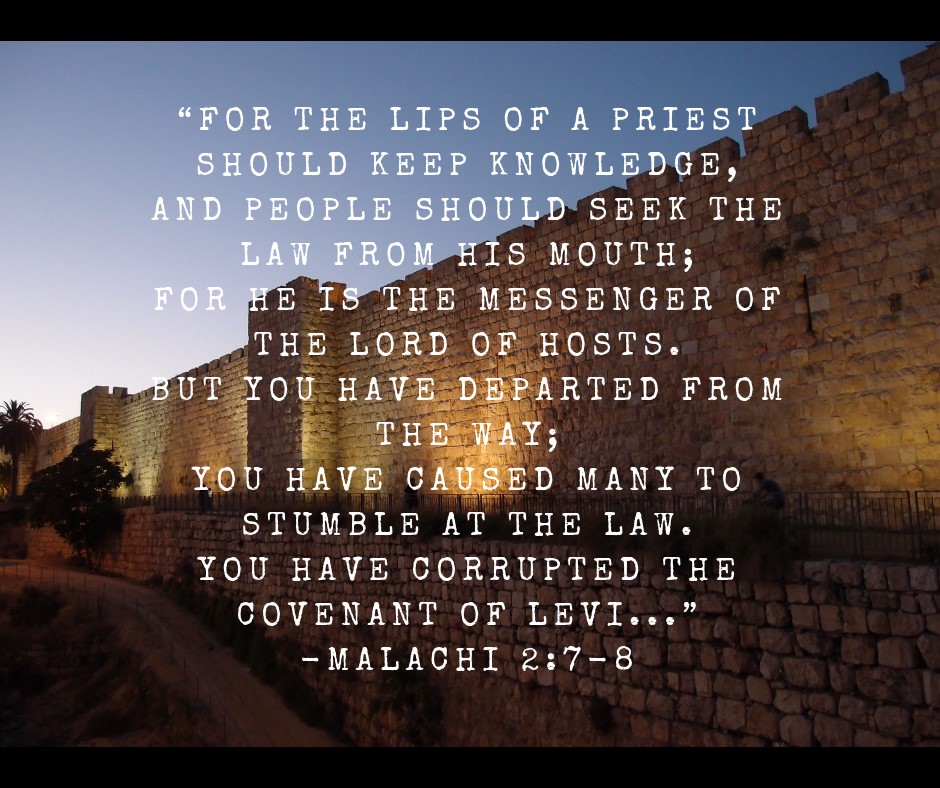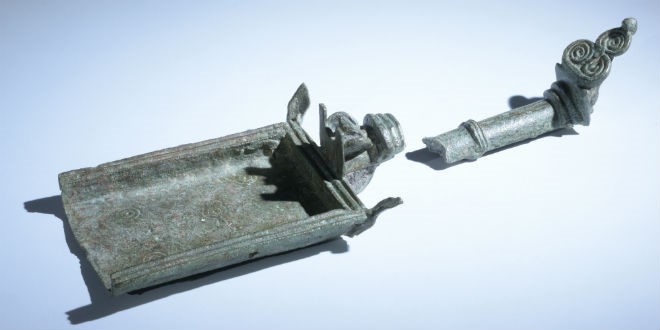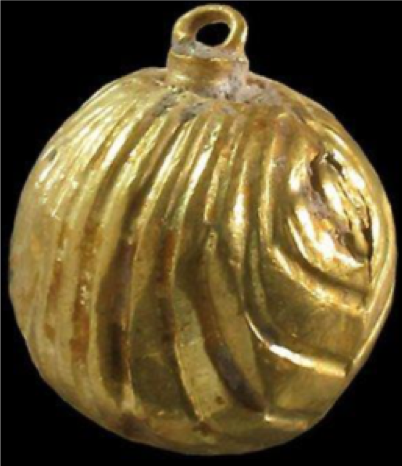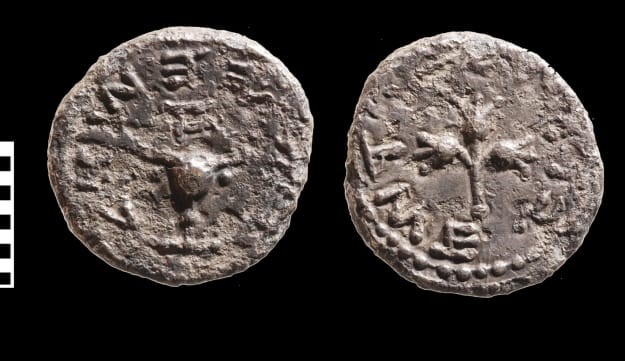The Importance of Prophets – Part 9

As we continue our journey through this series, we have taken an interesting look at the basic importance of the prophets of the Word, and identified the ‘who’ and ‘what’ of both the major and minor prophets of the Bible. In Parts One and Two, we focused on the three ‘major’ prophets—Isaiah, Jeremiah, and Ezekiel—before turning our attention to the ‘minor’ prophets in Parts Three, Four, Five, Six, Seven, and Eight.
In this part we will conclude our examination of the ‘minor’ prophets and the role they played in the Word…
‘Minor’ Prophets of the Old Testament:
As we discovered in Part One of this series, there are—according to some sources—two classifications of Old Testament prophets.
One classification being ‘major’ prophets: commonly consisting of three prophets—some sources include a fourth, Daniel—who have the largest prophetic texts and written oracles pertaining to future events, such as the destruction and recreation of Israel, and the coming of Messiah. These ‘major’ prophets include: Isaiah, examined in Part One, and Jeremiah and Ezekiel, examined in Part Two.
The second classification is ‘minor’ prophets: those who did not write extensive texts and oracles. These prophets include: Hosea, Joel, Amos, Obadiah, Jonah, Micah, Nahum, Habakkuk, Zephaniah, Haggai, Zechariah, and Malachi. In our study so far, we’ve examined all the minor prophets except for Malachi: Hosea, Amos, and Jonah in Parts Three and Four; Joel, Obadiah, Micah and Nahum in Parts Five and Six; Habakkuk, Zephaniah, Haggai and Zechariah in Parts Seven and Eight.
Finally, while the majority of Old Testament prophets fall into these two categories, there are some, such as, Elijah, Elisha, Samuel, Nathan, and occasionally Daniel, who are not categorized as either ‘major’ or ‘minor’ prophets despite their biblical and prophetic importance. These prophets we will simply categorize as ‘Old Testament Prophets.’
Malachi:
Malachi, whose name means, ‘My Messenger’ or rather ‘God’s Messenger,’ is the writer of the final prophetic book of the Old Testament. Written after Judah’s return from Babylonian captivity and the completion of the Second Temple, Malachi is believed to be the last prophet before the time of Jesus—at least, the last prophet sent of God to be written within the Word. Not only that, but it is believed that Malachi wrote this prophetic work after the completion of the Temple around 515 B.C. and no later than the 440’s B.C., at least 440 years before Jesus was born! If indeed the people of Israel and Judah did not have active, God-sent prophets after Malachi, it is no wonder the prophetic words of John the Baptist and those to follow were so amazing to the people—aside from the fact that they were impressive, God-filled words—and that many had trouble believing in prophets at all after hundreds of years of living with false prophets… after hundreds of years of lies.

Despite knowing approximately when Malachi wrote and that he likely resided in Jerusalem—as did many of the prophets—there is little else known about him. We do not know if he was trained up as a prophet, or, like many, called to the work of a prophet by God himself. Additionally, we know nothing of his family, his lineage, or if he lived to see any of his prophecies come to pass. Yet, we do know that he was a man in tune with God, gifted with prophetic insights regarding everything from the deceit of the priests being the cause of the people stumbling, to the coming of Messiah.
“‘I have loved you,’ says the Lord.”—Malachi 1:2
The book of Malachi begins with God’s love for Israel, His people, yet, much of the text to follow deals with their iniquity. This is not meant to indicate that His love waivers, but that He is not blind to the wrongs of His children.

(Source: Israel Antiquity Authority; Photo: Clara Amit. Incense shovel used during 2nd Temple period in a Magdala synagogue.)
First, Malachi addresses the polluted tithes and offerings given to God. Specifically, how the offerings of the priests and the people have been taken from their leftovers: injured animals, stolen gifts, lame and sick offerings. This is the first offense, yet, from it comes many others—for when we withhold the honor the Lord is due in our giving, our actions are sure to follow.
“A son honors his father,
and a servant his master.
If then I am the Father,
where is My honor?
And if I am a Master,
where is My reverence?”
—Malachi 1:6

(Credit: Israel Antiquities Authority. Golden bell worn on priestly garments.)
After Malachi addresses the polluted tithes and offerings, he brings into light the corrupt priests—an action that would have made Malachi less than popular—as well as the treachery of the general population in both dealings with one another and with God Himself! Their polluted offerings had opened a profane and cursed path as they despised and dishonored God in their actions.
“Have we not all one Father?
Has not one God created us?
Why do we deal treacherously with one another
by profaning the covenant of the fathers?”
—Malachi 2:10
At this point Malachi then changes direction and begins prophesying not of the wrongdoings of the people and what would occur if they did not change, but of the coming messenger who would prepare the way for the Lord, our Messiah. This prophecy in Malachi is one of the few that deals with the coming of Jesus, therefore it is fitting that it is found within one of the last chapters of the Old Testament… a final warning and word of preparation for the people before He would come.
“‘Behold, I send My messenger,
and he will prepare the way before Me.
And the Lord, whom you seek,
will suddenly come to His temple,
even the Messenger of the covenant,
in whom you delight.
Behold, He is coming,’
says the Lord of hosts.
“‘But who can endure the day of His coming?
And who can stand when He appears?
For He is like a refiner’s fire
and like launderers’ soap.
He will sit as a refiner and a purifier of silver;
He will purify the sons of Levi,
and purge them as gold and silver,
that they may offer to the Lord
an offering in righteousness.
“‘Then the offering of Judah and Jerusalem
will be pleasant to the Lord,
as in the days of old,
as in former years.
And I will come near you for judgment;
I will be a swift witness
against sorcerers,
against adulterers,
against perjurers,
against those who exploit wage earners and widows and orphans,
and against those who turn away an alien—
because they do not fear Me…
“‘For I am the Lord, I do not change;
therefore you are not consumed, O sons of Jacob.
Yet from the days of your fathers
you have gone away from My ordinances
and have not kept them.
Return to Me, and I will return to you,’
says the Lord of hosts.
‘But you said,
“In what way shall we return?”’”
—Malachi 3:1-7
While this is perhaps one of the most important prophecies of the Old Testament in regard to the coming of Messiah, it is perhaps less timely in the prophetic currently than it is as a teaching—teaching us the ways of the Lord, reminding us that He does not change.

(Source: Temple Mount Sifting Project. Half-Shekel found on Temple Mount site inscribed with ‘Holy Jerusalem,’ minted between 67-70 A.D.)
From here, Malachi again returns to the wrongs of God’s people, his words about robbing God in tithes and offerings are still vital today, as—according to the most indulgent sources—only 1 out of 4 regular churchgoers tithe! Of these, most do not even tithe 10% of their income, tithing irregularly. Further still, many sources claim as few as 2% of those identifying as Christians may actually tithe at all—often not even tithing to God’s house, but to secular charities!
So, while in the days of Malachi the offerings given to God were polluted, today we rarely give to God at all—even rarer at the Feasts God has ordained—making Malachi’s words timelier than ever…
“‘Will a man rob God?
Yet you have robbed Me!
But you say,
“In what way have we robbed You?”
In tithes and offerings.’”
—Malachi 3:8
However, God did not simply inform Malachi—and us through him—that by not tithing we were not honoring God. He also told us of the blessings that would come by obeying Him in this…
“‘Bring all the tithes into the storehouse,
that there may be food in My house,
and try Me now in this…
If I will not open for you the windows of heaven
and pour out for you such blessing
that there will not be room enough to receive it.
“‘And I will rebuke the devourer for your sakes,
so that he will not destroy the fruit of your ground,
nor shall the vine fail to bear fruit for you in the field…
And all nations will call you blessed,
for you will be a delightful land,’
says the Lord of hosts.”
—Malachi 3:10-12
Finally, Malachi speaks of the people complaining harshly. Yet, further still, he informs the people of God’s ‘Book of Remembrance’ and the ‘Day’ of His coming… almost an answer from God to their complaining as He speaks of things to come. Both the sparing of individual lives of those who fear Him being told in the Book of Remembrance, and of the final days before the coming of the Lord—a reminder to return to Him, to cease complaining, and do His will…
“‘For behold, the day is coming,
burning like an oven,
and all the proud, yes, all who do wickedly will be stubble.
And the day which is coming shall burn them up…
That will leave them neither root nor branch.
But to you who fear My name
the Sun of Righteousness shall arise
with healing in His wings;
and you shall go out
and grow fat like stall-fed calves.
You shall trample the wicked,
for they shall be ashes under the soles of your feet
on the day that I do this…
“‘Remember the Law of Moses, My servant…
Behold, I will send you Elijah the prophet
before the coming of the great and dreadful day of the Lord.
And he will turn
the hearts of the fathers to the children,
and the hearts of the children to their fathers,
lest I come and strike the earth with a curse.’”
—Malachi 4:1-6
While Malachi focused primarily on the unfaithfulness of God’s people, he left us with not only important insights into God, but into the coming of our Lord—what to expect in the final days. Malachi, while likely unpopular with God’s people at the time, was blessed of God to see the beautiful days of His coming… to know the trust of Lord. In this, Malachi surely found joy! Just as we find in the Message God gave…

During the course of this series we will continue to examine the lives of the prophets of the Word. We will see how those of the Old Testament prophesied not only of what was about to occur—or would occur without action—but, how they laid out prophecies which not only came about during the days of Jesus, but are still coming to pass to this day!
Finally, we will examine New Testament prophets and how, from the book of Matthew to Revelation, what was and is to come, was revealed to us in part…